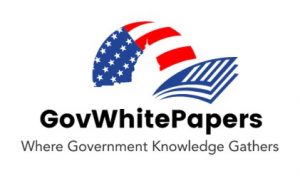 Blockchain technology is a new way of passing information from point A to point B. The data passes through a "block" that gets validated by a network of unrelated computers, and democratizes the transfer of data. This creates a transparency for the path of the data and makes that path irreversible. It also allows for computational logic to be attached to data, enabling automation around actions associated with it.
Blockchain technology is a new way of passing information from point A to point B. The data passes through a "block" that gets validated by a network of unrelated computers, and democratizes the transfer of data. This creates a transparency for the path of the data and makes that path irreversible. It also allows for computational logic to be attached to data, enabling automation around actions associated with it.
Organizations across government have been experimenting with ways blockchain technology could make transactions more efficient, secure, and transparent. With the COVID-19 pandemic the ability to easily, securely, and transparently share data has never been more important. In the many areas of our lives affected by the pandemic, blockchain is proving to be a tool for meeting the quickly evolving demands of public health, financial markets, and even democracy itself.


 More than finding cost efficiencies with cloud, government has realized its adoption is critical to business continuity. With mandatory telework as a result of COVID-19, organizations that have been proactive in their move to cloud found themselves able to quickly adapt and continue business as usual in very unusual times. Organizations that did not prioritize cloud found themselves scrambling to give employees access to the technology they needed to do their work.
More than finding cost efficiencies with cloud, government has realized its adoption is critical to business continuity. With mandatory telework as a result of COVID-19, organizations that have been proactive in their move to cloud found themselves able to quickly adapt and continue business as usual in very unusual times. Organizations that did not prioritize cloud found themselves scrambling to give employees access to the technology they needed to do their work. With many people in a rush to put 2020 behind us, those of us in the government market can safely say we're operating like it's 2021 (not as fun as partying like it's 1999, but anything beats 2020, right?). While the rush to meet the deadline for federal government fiscal year (GFY) spending on September 30 may have felt oddly comforting in its familiarity, there are
With many people in a rush to put 2020 behind us, those of us in the government market can safely say we're operating like it's 2021 (not as fun as partying like it's 1999, but anything beats 2020, right?). While the rush to meet the deadline for federal government fiscal year (GFY) spending on September 30 may have felt oddly comforting in its familiarity, there are  Necessity is the mother of invention, and that is in fact the case with virtual events. The ability to host virtual events has been available for quite some time, but the demand has not been there. With the sudden shutdown of the country due to COVID-19, event planners looked to
Necessity is the mother of invention, and that is in fact the case with virtual events. The ability to host virtual events has been available for quite some time, but the demand has not been there. With the sudden shutdown of the country due to COVID-19, event planners looked to  GovWhitePapers
GovWhitePapers
